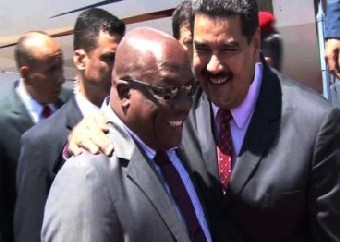“Barbados is in a precarious economic situation”, says IMF

BRIDGETOWN, Barbados – At the request of the newly elected Government of Barbados, an International Monetary Fund (IMF) team led by Bert van Selm visited Bridgetown on June 5-7, to have discussions on economic policies and possible IMF financial support of the government’s economic plan.

At the end of the visit, Mr. van Selm made the following statement:
“Barbados is in a precarious economic situation. International reserves have dwindled to US$220 million, while central government debt is unsustainable. The fiscal deficit has decreased over the last few years but remains large, at about 4 percent of GDP in FY2017/18. Meanwhile, the Central Bank of Barbados (CBB) is reporting a contraction of output of 0.7 percent in the first quarter of 2018 (over the same period last year).
“The Barbadian authorities, in close consultation with their social partners, are rapidly developing a plan to address current economic vulnerabilities. We welcome the government’s plans to urgently address infrastructure problems, and its goal of seeking to support the most vulnerable during the economic adjustment process.
“At this juncture, the IMF’s recommendations contained in the 2017 Article IV Consultation remain highly relevant to rebuild confidence and address Barbados’ current challenges. Substantial fiscal consolidation is needed to place debt on a clear downward trajectory in conjunction with the proposed debt restructuring, and to address balance of payments risks that cloud the country’s future.
Since tax and revenues are relatively high, the adjustment effort should focus on the expenditure side, including by improving the efficiency and effectiveness of public services, containing wages, and reforming government pensions.
Government transfers to SOEs need to be reduced by reviewing user fees, exploring options for mergers and privatization, and by providing much stronger oversight.
Tax policy should be reviewed with a view to broadening the tax base and improving its progressivity, while efforts to strengthen tax administration should continue. Structural reforms are critical to improve the business climate in Barbados to attract investment, and develop the private sector.
“Fiscal consolidation will also help to reduce financing needs, in conjunction with the proposed debt restructuring. It will be important for the CBB to limit financing of the government budget given that such practice is not consistent with Barbados’ exchange rate peg; the large monetary financing over the last few years has contributed to the decline in international reserves.
“We also note the authorities’ decision to seek a restructuring of domestic debt and external debt to commercial creditors. An early and open dialogue with the country’s creditors, aiming to achieve an orderly debt restructuring process, is important.
“Overall, the team had very positive and candid discussions with the government during the visit. In the coming months, we expect to continue our close dialogue with the Barbados government with the aim of reaching understandings on economic policies that could underpin an IMF supported program. Our goal is to help Barbados achieve higher living standards and more inclusive growth for the years ahead.
“During the visit, the team met with Prime Minister Mia Mottley, Minister of Finance, Economic Affairs and Investment, CBB Governor Haynes, and other key officials. The team also had good opportunities for exchange of views with social partners, including labor unions and the private sector. The team would like to thank the Barbados government for open and candid discussions, and to express its desire to continue to work closely with Barbados in the period ahead.”





